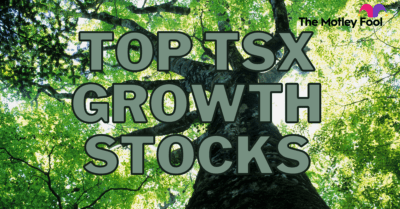It’s hardly surprising that Warren Buffett had a record level of cash just before the market crash last week. After all, he isn’t known as the Oracle of Omaha for nothing. Buffett has built an immense fortune by being one of the savviest and most patient investors on the planet.
That’s why the average investor has plenty to gain by following his moves. Over the past week, as global stock markets collapsed, Buffett finally loosened the purse strings and deployed some of his cash to buy more stocks.
Here’s a closer look at what he spent his money on and what Canadian investors can take away from the Oracle’s latest bet.
Betting on airlines
Buffet spent a massive US$45.3 million to buy more shares of Delta Airlines. He already owns a hefty stake in the company and has positions in all of its biggest rivals. In other words, he seems to be betting on a bright future for the airlines industry.
That seems like a reasonable bet when you consider the prospects of global air travel. The domestic air travel market in America is dominated by a handful of players and is collectively worth US$145.6 billion. The overall market isn’t growing rapidly, but the industry’s key costs — the price of oil — is expected to decline.
In fact, a barrel of Brent crude oil is worth 20% less than it was just a year ago. Now that the coronavirus pandemic is expected to suppress demand further, oil could fall much lower.
Air Canada
Fortunately for Canadian investors, Buffett’s bet is based on macroeconomic factors that also apply to us. Canada’s air travel market is even more concentrated and a drop in oil prices should improve margins here as well.
The prime beneficiary is Air Canada (TSX:AC)(TSX:AC.B) which already dominates Canadian skies. Along with rival Westjet, the two companies control 80% of Canada’s domestic air travel market. That duopoly has worked in their favour for years.
However, the airline has a history of being susceptible to recessions. Back in 2008, the stock plunged from double digits to sub-$1 within months. Since that time, it has been steadily recovering and generating wealth for patient shareholders.
If you’d bought the stock in 2009, under $1, you’d have a 50-fold return by 2019 and roughly 30-fold return today, as the stock seems to be plunging again.
Over the past two months, Air Canada has lost roughly 40% of its value. Now, the stock trades at just 5.8 times trailing earnings and just 0.44 times sales.
However, both sales and earnings are expected to dip dramatically in 2020 as people continue to avoid traveling by air during the ongoing COVID-19 pandemic.
Investors should expect Air Canada’s correction to continue until the pandemic is tamed or resolved. At that point, the stock will start looking like an excellent long-term opportunity yet again.
Bottom line
While the market continues to sell off, Warren Buffett has been betting big on U.S. airlines. The Oracle of Omaha seems to be expecting a gradual recovery in airline stocks once this crisis is resolved.
Canadian investors should probably keep a close eye on Air Canada for a similar opportunity.










